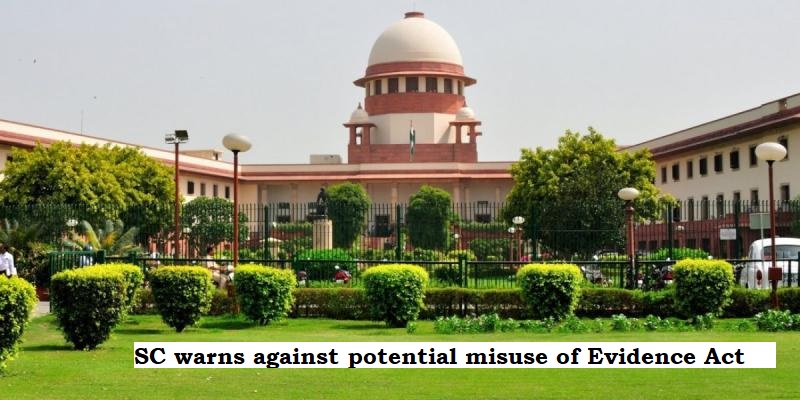


On January 3, the Supreme Court delivered a verdict highlighting concerns about the potential misuse of Section 27 of the Evidence Act. The court underscored the frequent utilization of this provision by the police and emphasized the necessity for judicial vigilance to safeguard the credibility of evidence. Despite cautioning against suspicion in every case invoking Section 27, the court clarified that this should not automatically lead to discarding the provision as perfunctory or unworthy of credence.
The backdrop of these observations was a criminal appeal filed by the appellant, Perumal, convicted of the murder of Rajini, also known as Rajinikanth. During Perumal's detention in connection with another murder case involving Rajinikanth's father, Rajaram, he made a disclosure statement regarding Rajini's murder. Acting on this information, the police recovered parts of the deceased, leading to Perumal's arrest.
The Trial Court convicted Perumal under Section 302 of the IPC for Rajini's murder, and the High Court upheld this conviction, imposing a sentence of life imprisonment. The case eventually reached the Supreme Court, which made significant observations regarding the interpretation of 'custody' under Section 27 of the Evidence Act.
Justice, in authoring the judgment, emphasized a pragmatic reading of the term 'custody.' The court ruled that custody should not be confined to formal custody but must encompass any form of restriction, restraint, or surveillance imposed by the police. Drawing a distinction between an incomplete chain of circumstances and a complete chain with a false defense or explanation, the court noted that the appellant, in his statement under Section 313 of the Code of Criminal Procedure, outrightly denied all accusations without providing any explanation.
As a result, the court invoked a reasonable adverse inference, considering the denial as an additional link in the chain of circumstances. This additional link, the court argued, reinforced the prosecution's evidence, supporting the conclusion of guilt. Consequently, the court affirmed Perumal's conviction, stating that the judgment of acquittal lacked relevance and evidentiary value in his case.
The Supreme Court's observations underscore the need for a balanced approach to Section 27, acknowledging its potential for abuse while emphasizing the importance of scrutinizing each case individually. The court's nuanced interpretation of 'custody' aligns with a broader understanding that goes beyond formal confinement. In this particular case, the court's meticulous analysis of the appellant's denial and the resultant adverse inference illustrates a commitment to ensuring the integrity of the criminal justice process.
In conclusion, the Supreme Court's verdict serves as a reminder of the crucial role the judiciary plays in upholding the rule of law and protecting the rights of individuals, even as it navigates the complex landscape of evidentiary provisions and legal interpretations.
TAGS: Supreme Court Verdict Section 27 Evidence Act Police Misuse Judicial Vigilance Disclosure Statement